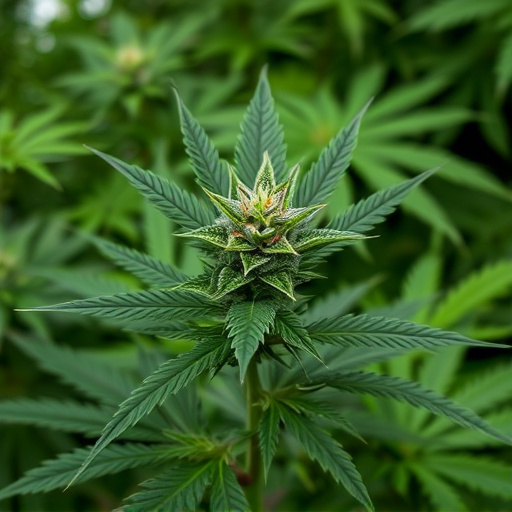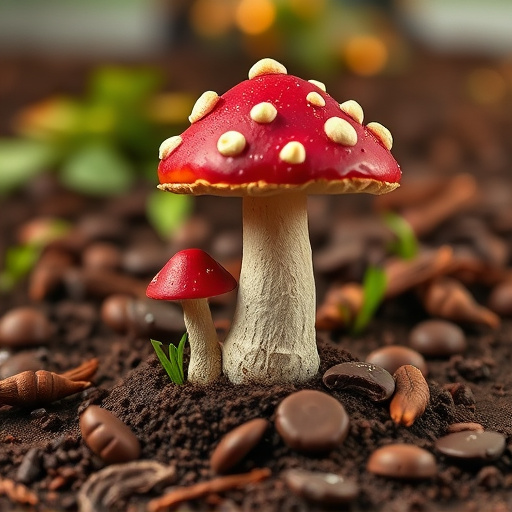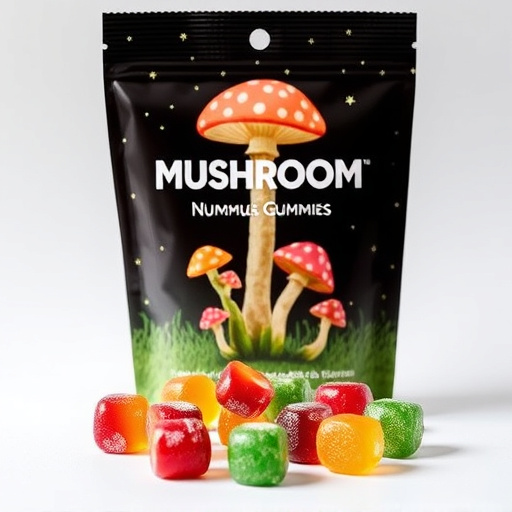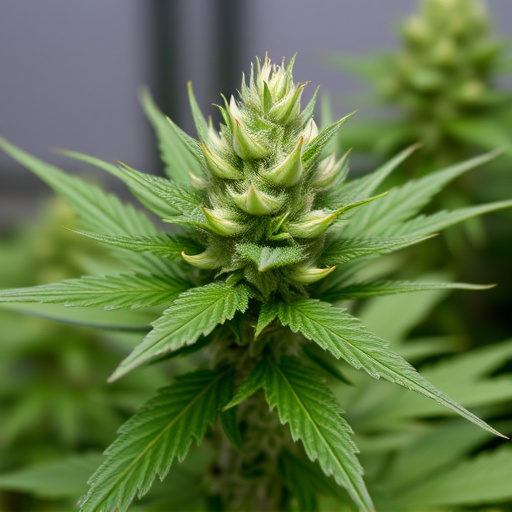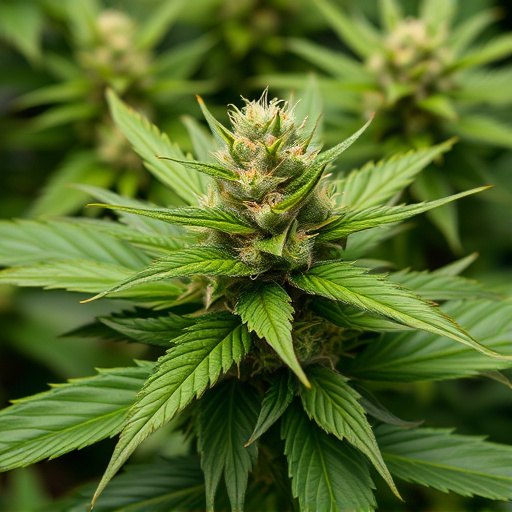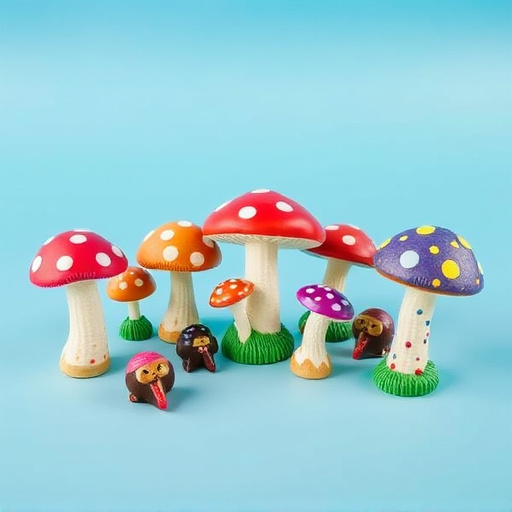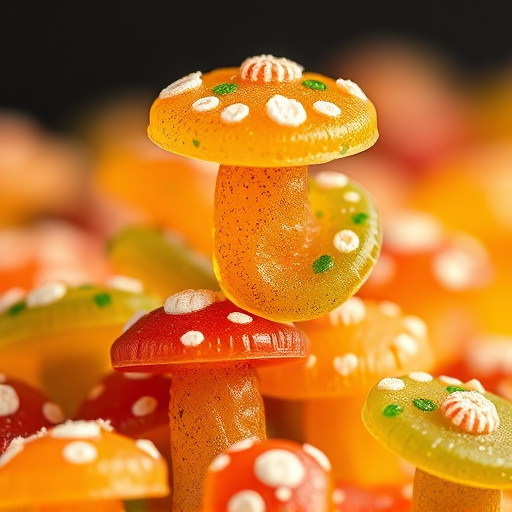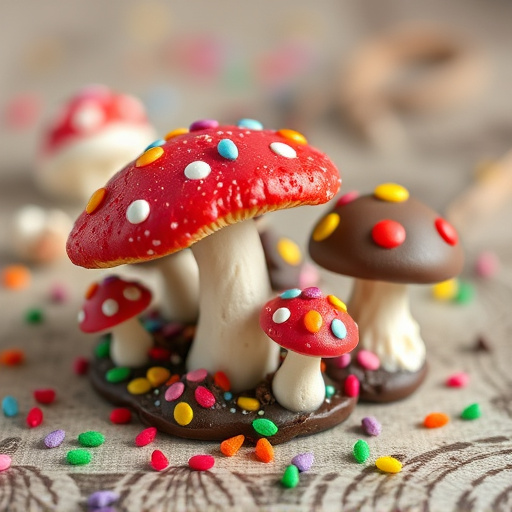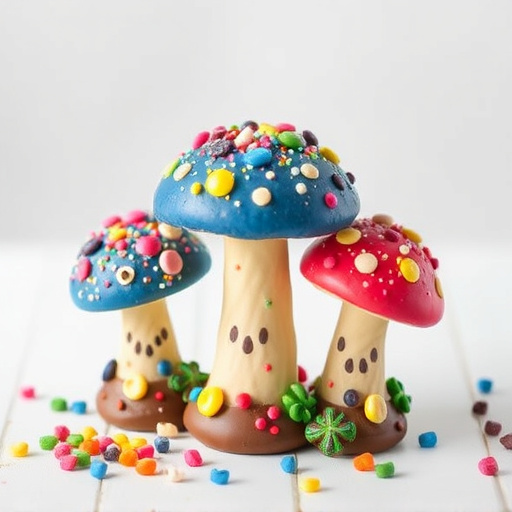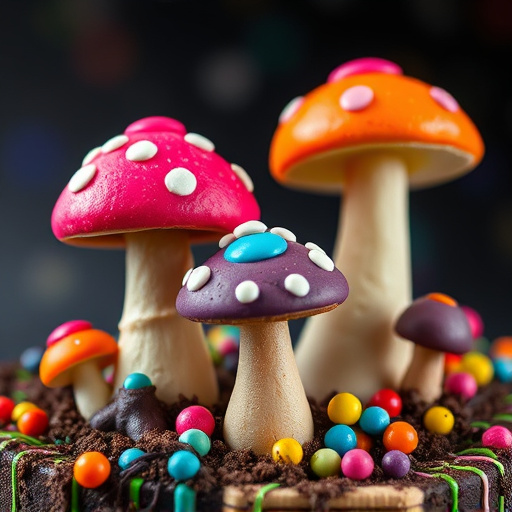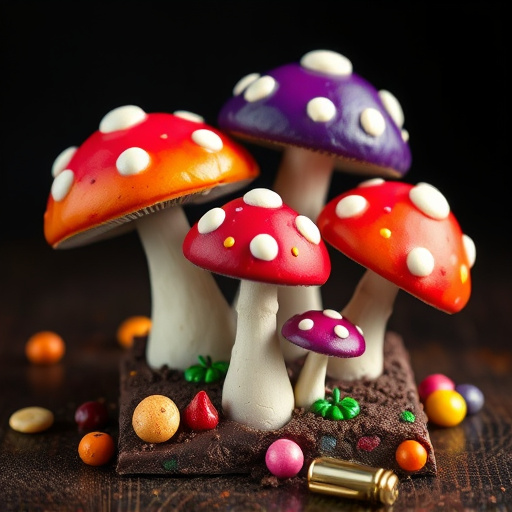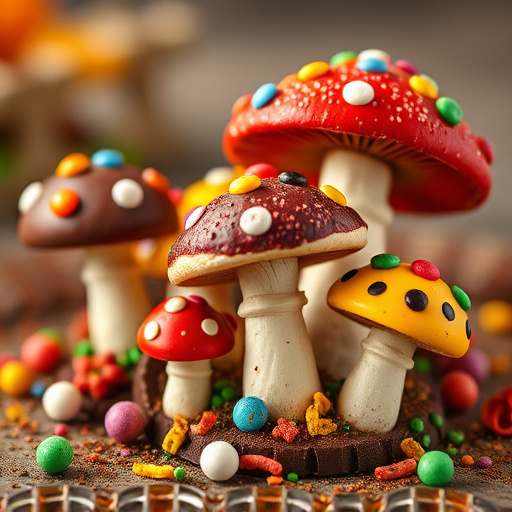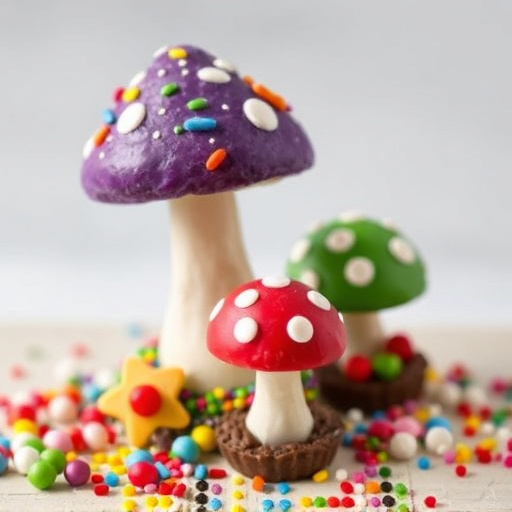The science behind magic mushrooms (Psilocybin) and their impact on brain function is evolving, with research highlighting the potential of magic mushroom chocolates as a controlled way to enhance focus, mental clarity, creativity, and problem-solving skills without intense psychedelic effects. Psilocybin triggers serotonin release, affecting mood, perception, and cognitive functions. Magic mushroom chocolates, as an accessible and palatable delivery method for psilocybin, could revolutionize therapeutic approaches to brain function and mental health.
Discover the intriguing world of Magic Mushroom Chocolates and their potential to enhance brain function and focus. This unique combination of psychotropic compounds found in magic mushrooms (psilocybin) and the indulgent goodness of chocolate is sparking interest in both scientific communities and wellness enthusiasts. From the science behind psilocybin‘s impact on the brain to the art of crafting delicious, focused-boosting treats, this article explores everything you need to know about this fascinating trend.
- The Science Behind Magic Mushrooms and Brain Function
- – Exploring the chemical composition of magic mushrooms (psilocybin)
- – How psilocybin interacts with brain receptors and neurotransmitters
The Science Behind Magic Mushrooms and Brain Function
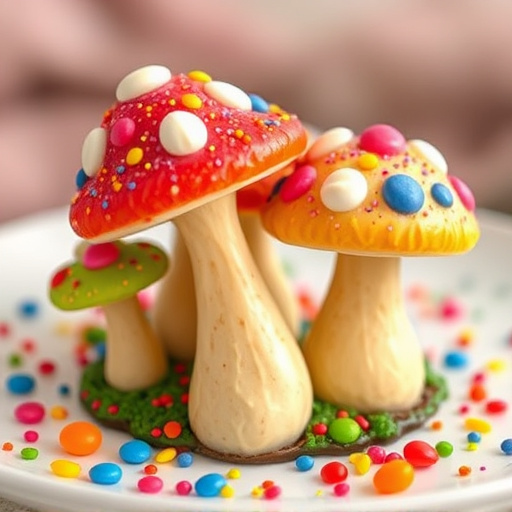
The magic mushroom, scientifically known as Psilocybin, has been a subject of fascination and study for its potential effects on brain function. Research is beginning to uncover the complex ways in which these fungi interact with our neurology, particularly regarding focus and attention. When consumed, psilocybin triggers the release of serotonin, a neurotransmitter that plays a key role in mood regulation, perception, and cognitive functions, including concentration and memory.
Studies have shown promising results in using magic mushroom chocolates as a tool for enhancing focus. The controlled delivery of psilocybin through chocolate can offer a more manageable experience compared to traditional methods. This allows for the potential benefits of improved mental clarity, heightened creativity, and enhanced problem-solving skills without the intense psychedelic effects often associated with high doses. In essence, magic mushroom chocolates may provide a novel approach to optimizing brain function and cognitive performance in everyday life.
– Exploring the chemical composition of magic mushrooms (psilocybin)
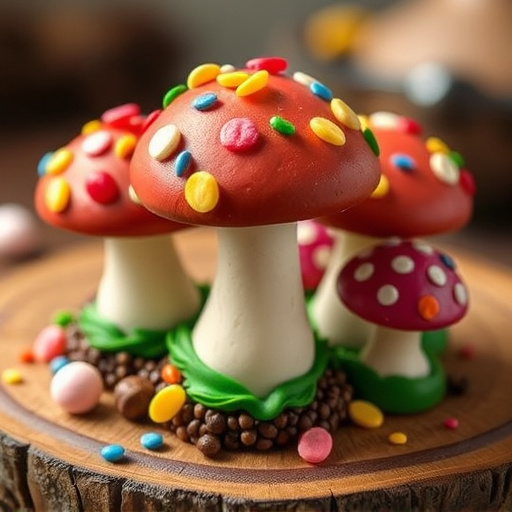
Magic mushrooms, scientifically known as Psilocybin mushrooms, contain a unique chemical compound called psilocybin that has sparked both curiosity and controversy. This organic compound is primarily responsible for the psychedelic effects associated with these fungi. When ingested, psilocybin is metabolized into psilocin, which interacts with serotonin receptors in the brain, leading to altered perceptions and heightened cognitive functions.
The impact of psilocybin on brain function has been a subject of growing interest within the scientific community. Studies suggest that magic mushrooms may hold therapeutic potential for various mental health conditions. Research indicates they can enhance creativity, improve mood, and even promote emotional well-being. When incorporated into edible forms like chocolates, the delivery method becomes more accessible and palatable, potentially offering a novel approach to exploring the therapeutic benefits of psilocybin while ensuring controlled doses and a more pleasant consumer experience.
– How psilocybin interacts with brain receptors and neurotransmitters
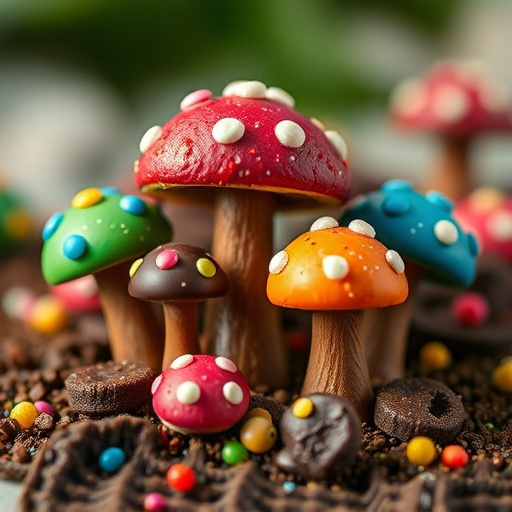
Psilocybin, the active compound found in magic mushrooms, has been a subject of interest for its potential therapeutic effects on brain function. When consumed, psilocybin interacts with specific receptors in the brain, primarily targeting serotonin receptors, particularly 5-HT2A receptors. This interaction leads to the release of neurotransmitters like serotonin, dopamine, and norepinephrine, which play crucial roles in various cognitive processes.
The effect of psilocybin on brain function is complex. It can alter perception, enhance creativity, and induce a sense of well-being. Studies suggest that it may also improve focus and attention by modulating neural connections and promoting neuroplasticity. This interaction with the brain’s reward system and neurotransmitter networks has shown promise in treating conditions like depression, anxiety, and addiction, providing a novel approach to understanding and potentially enhancing cognitive abilities through magic mushroom chocolates and other formulations.
The potential of magic mushroom chocolates as a focus booster is intriguing, but it’s essential to approach this topic with caution. While scientific research into psilocybin’s effects on brain function shows promise, further studies are needed to fully understand its impact, especially in the context of consumable products like chocolate. In terms of magic mushroom chocolates and brain function, we must prioritize safety and efficacy. As we navigate this emerging landscape, keeping an open mind while staying grounded in evidence-based practices is crucial for unlocking the possible benefits while mitigating risks.
